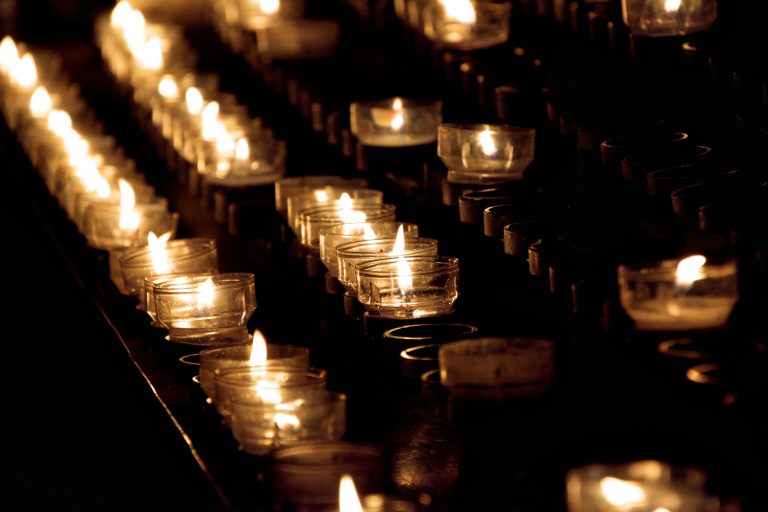By Cajetan Cuddy, O.P.

Renewed interest in the works of the Dominican priest Réginald Garrigou-Lagrange continues to gain momentum. The publication of this translation of his 1934 Le Sens du mystère et le clair-obscur intellectuel signals a noteworthy moment in the contemporary rediscovery of the late “Fr. Garrigou.” Earlier, in 2013, an independent publication of Garrigou-Lagrange’s essay The Essence and Topicality of Thomism appeared. In 2015, a new edition of his forgotten book on the Christian life came back into print. And now Catholic philosophers and theologians have English access to The Sense of Mystery (Emmaus Academic). Additionally, new or revised translations of his articles can be found in academic journals. Two book-length studies of Fr. Garrigou’s life and thought are available in English. Finally, digital books and essays about his life and work lie scattered across the virtual world. From even a cursory list of recent publications in Garrigouvian texts and studies, one observes that the life and legacy of Réginald Garrigou-Lagrange today enjoys a renaissance.
Why Réginald Garrigou-Lagrange today? The answer appears simple: he was a theologian, a Thomist, and a contemplative. These three facets of his intellectual physiognomy remain as vital to the Church’s well-being in the twenty-first century as they were for the Church of the twentieth century (and before). Because each facet terminates in the truth, they stand as compenetrating features of Garrigou’s legacy. Although one may distinguish his theological vocation from his Thomistic commitments and from his contemplative realism, one can never separate them. In fact, a reader can recognize their mutually-sustaining influence on virtually every page Garrigou ever wrote.
I conclude with one final observation: each of Fr. Garrigou’s books bears a dedication to the Blessed Virgin Mary. Facile readers might interpret this gesture as a touching vestige of the Marian piety that characterized the French School of Spirituality. References to authors of the French School certainly appear in Garrigou’s writings. However, upon further reflection, something profound emerges. The realism of his Marian piety reaches, to invoke an earlier Thomist, the “frontiers of the Divinity” itself. Fr. Garrigou explains what this means in an autobiographical vignette:
As a young student . . . I was so engrossed in the many and varied questions of critica and metaphysics that I was in danger of losing my simplicity and elevation of mind and balanced judgment. It was then I realized that I needed a spiritual mother with unlimited kindness and wisdom.
Fr. Réginald Garrigou-Lagrange consecrated himself and his work to the Holy Mother of God. Theologians, Thomists, and contemplatives alike require Mary’s spiritual maternity. For only in Mary does one really learn what it means to live in obedience to the truth: “Behold, I am the handmaid of the Lord; let it be to me according to your word” (Luke 1:38). Mary’s consecration to the truth was such that she conceived the Eternal Word in her womb. All those who seek the grace of the word must seek the assistance of the Blessed Virgin. She remains for all generations the Holy Mother of God: “the Virgin Mary is called ‘the Mother of God’ because she is the mother of Jesus, who is God.” Her being and identity are only understood in light of her predestination to the divine maternity. “By one and the same decree the Father predestined Jesus to natural divine sonship and Mary for the divine maternity.” The metaphysics of Mary’s maternity causes angelic intellects to bow in reverence before the wisdom of God. Garrigou-Lagrange was no different.
Since the value or worth of a relation depends on the term which it regards and which specifies it . . . the dignity of the divine maternity is measured by considering the term to which it is immediately referred. Now this term is of the hypostatic order, and therefore surpasses the whole order of grace and glory. By her divine maternity Mary is related really to the Word made flesh. The relation so set up has the uncreated Person of the Incarnate Word as its term, for Mary is the Mother of Jesus, Who is God. . . . It is He and not His humanity that is the Son of Mary. Hence Mary, reaching, as Cajetan says, even to the frontiers of the Divinity, belongs terminally to the hypostatic order, to the order of the personal union of the Humanity of Jesus to the Uncreated Word.
Mary conceived the Eternal Word himself in her sacred womb. She was shaped by the wisdom of God who ordained that she should be a holy dwelling place for the Son (see Revelation 21:3). Finally, the reality of her identity reaches “even to the frontiers of the Divinity.”
Our Lady makes a summary statement easy to formulate. The legacy of Fr. Réginald Garrigou-Lagrange, O.P., retains a lasting value. It reminds the world that the theologian, the Thomist, and the contemplative each receive their identity through a real relation to the Eternal Word—in Mary.
Fr. Réginald Garrigou-Lagrange (1877-1964) was a French theologian and leading Thomist of the twentieth century who taught at the Dominican Pontifical University of St. Thomas Aquinas, the Angelicum, in Rome from 1909 to 1960. He was both a teacher of Jacques Maritain and the director of Pope John Paul II’s first doctoral thesis. His book The Sense of Mystery: Clarity and Obscurity in the Intellectual Life has been translated into English by Matthew K. Minerd and is available from Emmaus Academic.